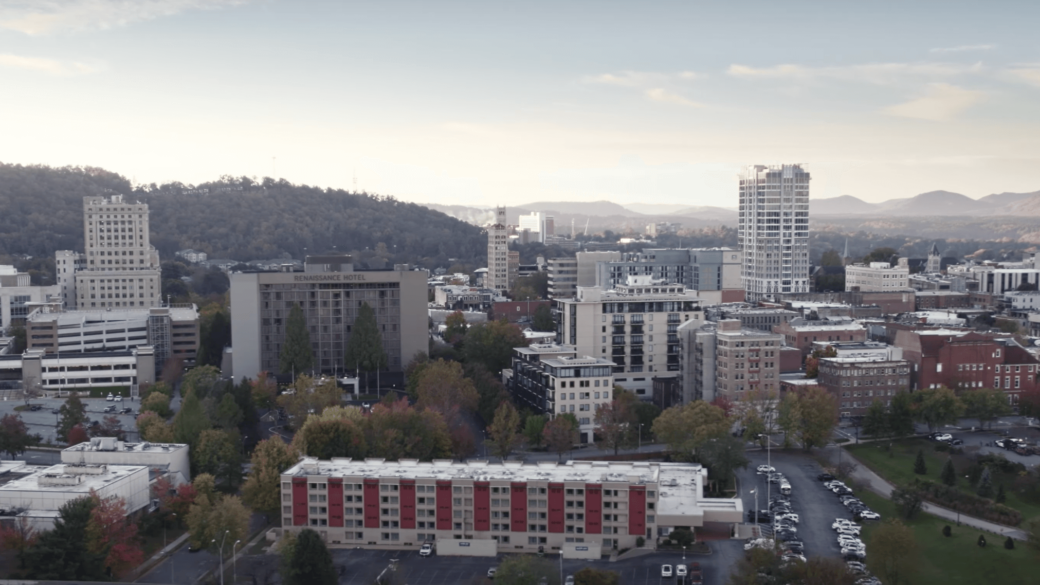Reasons Not to Move to Asheville NC
Asheville, North Carolina, renowned for its artistic flair and mountain vistas, is a popular choice for many looking to relocate or visit. Nevertheless, it’s crucial for potential newcomers to evaluate both the positive and negative aspects thoroughly before making such a substantial decision.
This article offers an in-depth analysis of the 12 reasons not to move to Asheville NC, systematically exploring each point from the least to the most critical.
12. Limited Public Transportation Options
For daily commuters, Asheville’s public transportation system can be a significant concern. The city’s transit system is less developed than in larger cities.
This limitation forces residents to use personal vehicles to navigate the city. Since bus routes are less frequent, West Asheville residents may struggle to commute to a job in East Asheville without a car.
The lack of robust public transit increases reliance on personal vehicles, which increases traffic congestion and environmental pollution for non-drivers and environmentally conscious people.
11. High Cost of Living
Asheville’s high cost of living is another critical factor to consider. Housing and other costs have risen due to the city’s popularity in recent years.
Median home prices in the housing market exceed the national average, highlighting this increase. A middle-class family looking to buy a moderately-sized home in Montford or Biltmore Forest may find it too expensive.
In Asheville, groceries, utilities, and entertainment cost more than in other cities. Low-income and low-paying families may struggle with this high cost of living.
10. Limited Job Market
Despite a thriving tourism industry and arts scene, Asheville has a limited job market, especially for high-paying jobs. The city relies on service and tourism jobs, which do not offer high wages or job security like some larger economies.
Technology or finance professionals in Asheville may struggle to find jobs that match their skills and salary expectations. The limitation is especially severe for recent graduates and professionals seeking career advancement.
For individuals seeking career growth and financial stability, a lack of diverse job opportunities can be a major drawback.
9. Seasonal Allergies and Air Quality Issues
The climate in Asheville can be difficult for seasonal allergy sufferers. The city in the Blue Ridge Mountains has high pollen counts in spring and fall. This high pollen can severely impact allergy and respiratory sufferers’ quality of life. During peak pollen seasons, Asheville residents with asthma or hay fever may struggle to enjoy outdoor activities, which are a major draw.
In addition, the city’s popularity has increased traffic and construction, lowering air quality. It is important to consider these environmental factors, especially for those with health concerns related to air quality and allergies.
8. Weather Extremes
The mountainous location of Asheville makes its climate more variable and extreme. Northern North Carolina winters are harsher, with cold temperatures and occasional snowfall that can disrupt daily life. Winter road conditions in Asheville can make commuting and travel difficult.
Summers can be humid and hot, which can be uncomfortable for newcomers. Individuals seeking a more moderate or predictable climate may find these weather extremes undesirable, which is why the volatile climate is one of the reasons not to move to Asheville NC.
7. Over-Tourism and Crowding
Asheville has become a popular tourist destination, causing overcrowding during peak seasons. Tourists can overwhelm the city’s infrastructure, causing traffic, overcrowding, and crowded attractions.
This makes it difficult for residents to use the city’s amenities at certain times. For instance, a local family planning a weekend downtown outing may need help finding parking, waiting in restaurants, and navigating crowded streets.
Residents who want to enjoy their city without heavy tourist traffic may find this situation degrading.
6. Limited Diversity
Despite its progressive reputation, Asheville has a homogenous ethnic and cultural population. And this lack of diversity can hinder multicultural living. People of different races or ethnicities may have trouble finding a community that shares their culture.
This homogeneity may not reflect global cultures in the city’s cuisine, festivals, and community events. Asheville has limited diversity compared to larger, more cosmopolitan cities, where diverse cultures create a rich social fabric.
5. Education System Concerns
Before moving to Asheville, families should consider the education system’s mixed reviews. While Asheville’s public schools have good schools, performance and resource allocation can vary.
For instance, Asheville schools have faced underfunding, teacher shortages, and overcrowding. These issues can affect education quality and extracurricular options. Parents may need to consider private or charter schools to ensure a higher education standard, which can be costly.
4. Limited Healthcare Options
Asheville’s healthcare system has some good facilities but few specialties and advanced services. This restriction can be a significant concern for families with special healthcare needs. Someone who needs specialized medical care may have to travel to a larger city to access the necessary care. This may be difficult for seniors and chronically ill people.
The growing population of Asheville has also strained the healthcare infrastructure, resulting in longer wait times and fewer medical services.
3. Property Tax Increases
Recent years have seen Asheville’s property taxes rise due to rising housing demand and popularity. High property taxes in Asheville can strain fixed-income and middle-class families.
For instance, an Asheville retiree may struggle to keep up with rising costs, which can drain their fixed retirement budget. Rising property taxes affect Asheville’s long-term affordability, so potential home-buyers should consider them.
2. Gentrification and Loss of Local Character
New residents and businesses are rapidly changing the city’s landscape and demographics. This often displaces long-time residents and local businesses, changing the city’s character.
Luxury housing, upscale boutiques, and high-end restaurants are increasingly replacing neighborhoods that once had a distinct local charm. The River Arts District, once known for its eclectic and artistic vibe, is now becoming more commercialized.
This loss of local character and community can disappoint residents and visitors drawn to Asheville for its unique culture.
1. Housing Market Challenges
Poor housing is the biggest reason not to move to Asheville. The demand for housing in Asheville exceeds supply due to its popularity.
Due to this shortage, home prices and rents have risen, making housing harder for newcomers. Prices in Asheville often keep young professionals and families from buying their first home, forcing them to live in less desirable areas or delay homeownership.
Renters struggle to locate suitable housing due to the competitive housing market’s high rents and low availability. For anyone considering a move to Asheville, this housing crisis is the biggest concern because it directly impacts one’s ability to secure housing in the city.
Conclusion
In conclusion, Asheville, North Carolina, has a beautiful setting and a vibrant culture, but potential residents must consider important factors. With limited public transportation, high living costs, and a difficult housing market, Asheville can be difficult.
These drawbacks must be weighed against the city’s benefits before moving. Like any city, Asheville has pros and cons, so you must weigh them to decide if it is right for you and your family.


